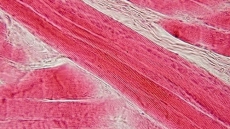While an adequate testosterone level is essential for men to maintain energy, sex drive and reproductive capacity, unnecessary testosterone therapy could increase prostate cancer risk, a study suggests.
Testosterone is a hormone produced primarily in the testicles.
Researchers found that testosterone raised the risk of prostate tumours and exacerbated the effects of carcinogenic chemical exposure in rats.
"This research demonstrates that testosterone on its own is a weak carcinogen in male rats," said study author Maarten Bosland from the University of Illinois at Chicago in the US.
"When it is combined with cancer-causing chemicals, testosterone creates a hospitable environment for tumours to develop. If these same findings hold true in humans, there is serious cause for public health concern," Bosland pointed out.
Testosterone use has soared in the last decade among older men seeking to boost energy and feel younger.
Two dose-response studies examined the incidence of prostate cancer in rats. The rats were given testosterone through slow-release implant devices.
Before the rats were dosed with testosterone, some of the animals were given injections of the carcinogenic chemical N-nitroso-N-methylurea.
Among the rats that received testosterone without the carcinogenic chemical, 10 to 18 percent developed prostate carcinomas.
When rats were exposed to testosterone and the carcinogen, the treatment caused prostate cancer in 50 to 71 percent of the rats.
Animals that were exposed to the carcinogenic chemical but not testosterone did not develop prostate cancer.
In view of the findings, Bosland urged caution in prescribing testosterone therapy to men who have not been diagnosed with hypogonadism, a condition that results from low testosterone.
Common symptoms of hypogonadism include decreased libido and erectile dysfunction, among others.
The study appeared in the journal Endocrinology.





